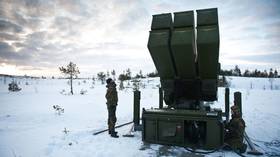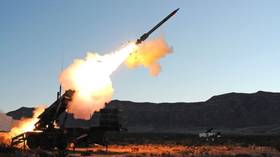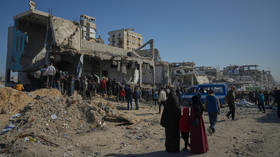Pentagon signs $1.2 billion deal on air defense systems for Ukraine

The US Army has announced that a $1.2 billion contract to produce six National Advanced Surface-to-Air Missile Systems (NASAMS) for Ukraine, amid its conflict with Russia, has been awarded to the defense conglomerate Raytheon.
“Work will be performed in Tewksbury, Massachusetts, with an estimated completion date of November 28, 2025,” the Department of Defense said in a statement on Wednesday.
Kiev has so far received two out of eight NASAMS units promised by Washington. The remaining systems are expected to be delivered to Ukraine once they are built.
Aside from the batteries themselves, the contract includes associated equipment and spare parts, along with training and logistical support for Ukraine’s military.
The deal is funded under the so-called Ukraine Security Assistance Initiative (USAI), which allows the Biden administration to procure weapons from the defense industry instead of taking them from existing US military stocks.
Ukraine has said it is in dire need of air defense systems, due to Russia’s recent large-scale missile strikes against military targets and energy infrastructure. Moscow has stepped up the pressure on Kiev since October 10, when it accused Ukraine of using “terrorist tactics” and targeting Russian infrastructure, including the strategic Crimean Bridge.
The Pentagon claims that the newly provided NASAMS systems have so far shown a 100% success rate in intercepting Russian missiles in Ukraine. Russia’s Defense Ministry, however, insists that after every missile barrage, all intended targets were hit.
Washington has so far been Kiev’s main backer during the conflict with Moscow, providing Vladimir Zelensky’s government with more than $19.8 billion-worth of military aid, including sophisticated hardware such as HIMARS multiple rocket launchers, M777 howitzers, and combat drones.
Russia has long been critical of weapons supplies to Ukraine by the US and its allies, saying that they only prolong the conflict and increase the risk of a direct confrontation between NATO and Moscow.













